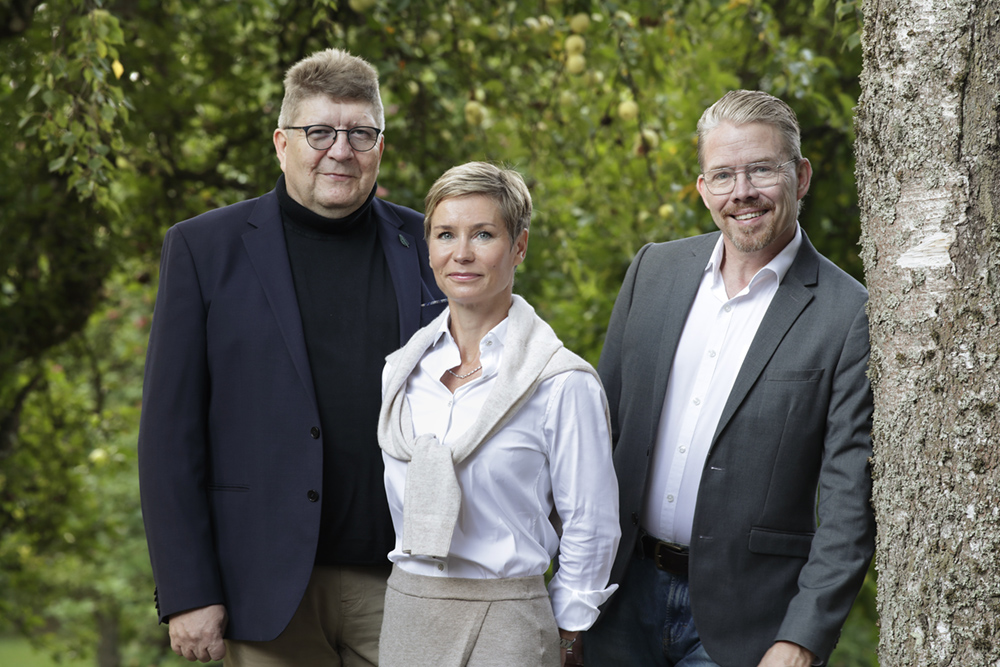

Israel’s Algocell raises US$2.8 million to scale AI ‘digital twin’ tech for cell-based manufacturing
Algocell, an Israel-based deep-tech startup, has raised US$2.8 million in pre-seed funding to advance its AI-powered digital twin technology, which the company believes can help solve some of the toughest bottlenecks facing cell-based manufacturing across sectors such as food, agriculture, biopharma, and industrial materials.
The round was led by Good Company VC (GCVC) and included several sector-focused angel investors, alongside a non-dilutive grant from the Israel Innovation Authority. As part of the deal, Arnaud Lorie, a partner at GCVC, has joined Algocell’s board of directors.
Founded in 2023, Algocell is developing a platform that uses machine learning models to simulate and optimize bioprocesses, helping companies move more quickly and efficiently from lab-scale experiments to commercial manufacturing.
The funds will help Algocell expand its team, enhance the predictive capabilities of its digital twin platform, and launch commercial pilot programs with manufacturers in diverse industries including food, therapeutics, industrial materials, biofuels, and cosmetics.
“Building a robust and accurate digital asset that mirrors the biological system can significantly shorten the path to cost reduction, scaleup, and tech transfer to manufacturing units – processes that often delay industry progress by years,” said Omri Schanin, CEO & Co-founder of Algocell. “The same challenge repeats itself across all cell-based products, from precision-fermented dairy proteins to recombinant yeast strains engineered to produce human insulin.”
While the promise of cell-based production – whether for alternative proteins, sustainable chemicals, or therapeutic molecules – has grown dramatically over the past decade, scaling up these processes from lab bench to industrial fermenters remains a persistent hurdle. Challenges include predicting how cells will behave in larger bioreactors, ensuring consistent yields, and controlling costs.
Algocell says its technology addresses these pain points by allowing R&D and production teams to run virtual experiments and simulations, optimizing processes without the cost and time associated with repeated physical trials. Unlike traditional modeling approaches that often demand extensive datasets, Algocell’s machine learning tools are designed to generate actionable insights even from small amounts of data.
“Both existing and emerging products need an approach that resolves core scaleup issues faster, drives costs down, and ultimately improves producer profitability,” Schanin said.
Algocell’s platform has been built to support clients across various domains, including cultivated meat, precision fermentation, and biopharma. According to the company, it is working with leading players in these industries, though specific partners were not disclosed in the funding announcement.
The company believes the potential for digital twins in bioprocessing is significant. Digital twins – virtual replicas of physical systems that can be manipulated and tested under different conditions – have been used for years in sectors like aerospace and manufacturing. But applying them to biological systems has proven complex, given the inherent variability and sensitivity of living cells.
Algocell aims to close this gap by combining biological expertise with engineering and advanced machine learning methods. Its platform allows users to predict outcomes such as growth rates, product yields, and responses to different process parameters, enabling more precise decision-making during scaleup.
“Designed for both R&D and production teams, the platform enables faster experimentation, improved process control, and consistent product quality – using Machine Learning models that deliver insights from small datasets,” said Schanin.
Investors are increasingly backing technologies that can help bring down production costs in cell-based manufacturing, particularly in areas like cultivated meat and precision fermentation, where the industry continues to grapple with high unit economics. Bioprocess optimization is widely seen as one of the keys to making these next-generation products viable at commercial scale.
The Israel Innovation Authority’s participation underscores the strategic importance that the Israeli government places on deep-tech and biomanufacturing innovation. Israel has been home to a growing cluster of startups working on alternative proteins and advanced fermentation technologies, many of which have emerged in response to global demand for sustainable food and materials.
Algocell’s announcement comes amid broader momentum in digital biomanufacturing, with companies globally investing in software tools to streamline process development and reduce costs. The integration of AI and machine learning into bioprocessing is seen as a crucial enabler for achieving consistency, scalability, and cost-efficiency in manufacturing complex biological products.
Backed by GCVC and other investors, Algocell is positioning itself as part of this new wave of technology providers aiming to modernize bioprocessing and accelerate the shift toward scalable, data-driven biomanufacturing.
The startup now plans to use its fresh capital to further refine its digital tools, grow its team of scientists and engineers, and begin commercial pilots to demonstrate the tangible cost and efficiency gains it believes it can deliver to partners across a wide range of industries.
If you have any questions or would like to get in touch with us, please email info@futureofproteinproduction.com

.png)




.webp)

